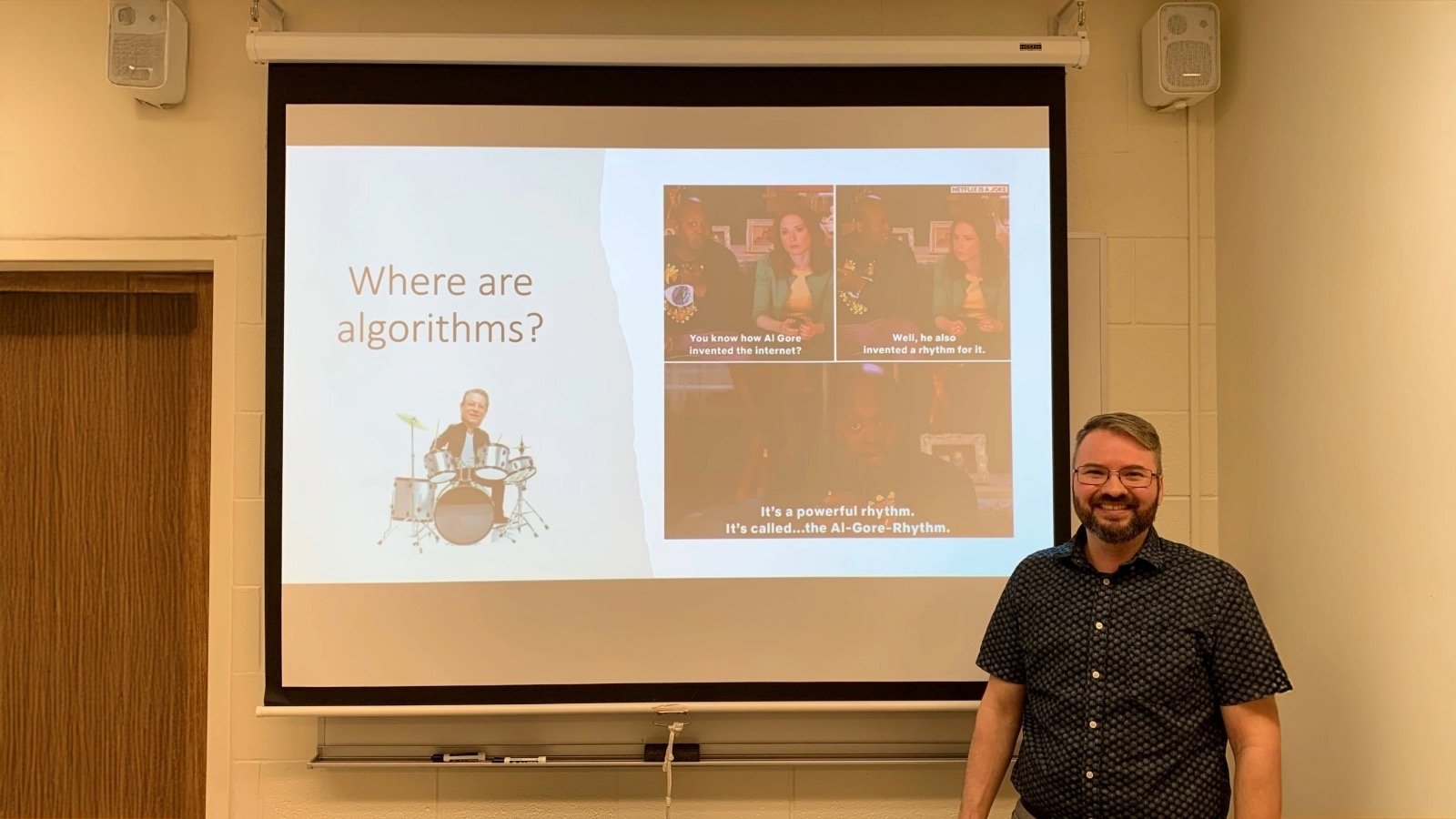
Start up
Passion. Potential. Pitches. Don't miss any of the 2025 New Venture Challenge excitement.
Tune in Friday, April 11 at 1 p.m. for great ideas and fierce competition. Then, join the judges, mentors, spectators and teams as they see who is going home with thousands of dollars in venture financing. The awards broadcast begins at 6:30 p.m. and one team will walk away as the overall best venture.
Central Michigan University’s College of Business Administration is the home of the Isabella Bank Institute for Entrepreneurship and the first Department of Entrepreneurship in the state of Michigan. We are a student-centric hub where experiential, curricular, and external entrepreneurial opportunities intersect.
Our mission is to maximize student success by fostering a campus-wide entrepreneurial mindset that promotes inter-disciplinary collaboration and the creation of new ventures.
We aim to create innovative programming, boost cross-campus and ecosystem collaboration and provide a comprehensive mentoring program.
Our institute provides extracurricular opportunities and is open to all undergraduate and graduate CMU students.
Are you interested in becoming an entrepreneur?
Every journey is unique. Explore the opportunities that interest you.
As AI-generated content becomes more sophisticated, so do the challenges of ensuring it is ethical and inclusive. Aiden Kosciesza, a professor at Central Michigan University, is leading a critical discussion on how artificial intelligence is reshaping communication and media. Through both his teaching and research, Kosciesza aims to equip students with the critical tools to navigate an AI-driven world while advocating for a more inclusive and responsible digital landscape.

In his course, Algorithms, AI, and Systemic Bias, Kosciesza challenges students to dissect the narratives surrounding AI and evaluate its capabilities. His goal is for students to become more critical consumers and creators of digital content. Students explore how AI models are developed, the biases inherent in their training data, and the ethical implications of their use. Kosciesza emphasizes that AI-generated content tends to amplify dominant perspectives, often at the expense of marginalized communities. As a trans scholar, he is particularly concerned about how trans perspectives are excluded from AI training datasets, leading to digital erasure. A recent classroom exercise revealed some of ChatGPT’s biases to students, such as misidentifying singular ‘they’ as incorrect grammar.
Beyond the classroom, Kosciesza’s research delves into the deep connection of AI with Search Engine Optimization (SEO). His upcoming research paper, which he will present at the International Communication Association conference in June, examines how AI relies on internet-scraped content shaped by commercial incentives. He argues that AI-generated text reflects the profit-driven structure of digital media, reinforcing existing power dynamics while narrowing creative and diverse perspectives. Kosciesza will also be one of several presenters at the upcoming CMU Symposium, The Future of AI in Graduate Education and Higher Ed.
Ultimately, Kosciesza advocates for a more thoughtful approach to AI integration, encouraging users to question the assumptions behind its perceived usefulness. “There’s a huge financial incentive to convince us AI is competent,” he said. “But we need to ask, is it truly competent, or just following patterns that look convincing?”

Explore special opportunities to learn new skills and travel the world.

Present your venture and win BIG at the New Venture Challenge.

Boost your entrepreneurial skills through our workshops, mentor meetups and pitch competitions.

Learn about the entrepreneurship makerspace on campus in Grawn Hall.

Present a 2-minute pitch at the Make-A-Pitch Competition and you could win prizes and bragging rights!

Connect with mentors and faculty who are here to support the next generation of CMU entrepreneurs.

Are you a CMU alum looking to support CMU student entrepreneurs? Learn how you can support or donate to the Entrepreneurship Institute.